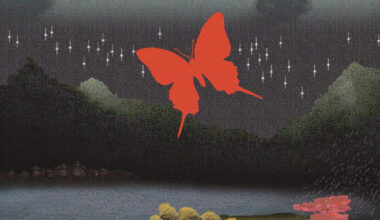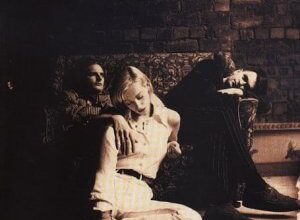
“If you’re very good I’ll invite you for tea and play ‘The Death Of The Clayton Peacock’, which would be the nicest thing that could possibly happen, and then we’ll go and feed the ducks.”
With those words in 1967, John Peel’s lifeline radio show opened the gate to guitarist John Fahey’s weird and wonderful world of arcane blues, mercurial beauty and surreal eccentricity. Every week, Peel dipped into the already voluminous catalogue that minted the American Primitive movement. I was transfixed, partly because something dark and even sinister obviously lurked beneath the luminescent floorboards.
Fahey became a lifelong obsession as I hunted his catalogue around the planet before he started becoming recognised as one of the 20th century’s great musical innovators and, as it happens, one of the last century’s fearless electronic pioneers.
A contrary bugger, Fahey despised folkies hailing his blues resurrections and hippies poring over his phantasmagorical annotations. Later hailed a new age pioneer, he lurched into ear-bleeding racket. Ultimately, Fahey’s music reflected his personal life including, at various times, woman trouble, illness, alcoholism, poverty and a Nazi fascination. When he recorded 1967’s ‘Requia And Other Compositions For Guitar Solo’, his turbulent love life inspired a nightmare sonic barrage that unwittingly predicted turntablism, sampling and collage.
After gaining his Masters in Folklore at UCLA in June 1966, Fahey started his explorations with ‘A Raga Called Pat’, overdubbing sound effects from Folkways’ ‘Sounds Of A Tropical Rain Forest’ and ‘Steam Railroading Under Thundering Skies’ over his guitar, running the records backwards and forwards at different speeds under his playing (including a toad). The first two parts of ‘A Raga Called Pat’ (the other two showed up later) appeared on 1967’s ‘Days Have Gone By’.
Upon signing to Vanguard, Fahey entered Hollywood Sound Recorders studio in January 1967, where experiments including the 21-minute ‘Requiem For Molly’ suite appeared with boggling effect on November’s ‘Requia’. Fahey had been dumped by girlfriend/muse Molly Greenbaum, making the astonishing suite his eulogy to their deceased relationship with its demented proto-sampling of sound effects, Nazis, marching bands and fairground organ; all intended to illustrate the poor girl’s mental unraveling “and the reaction of another person in observing this process, for which he was perhaps, to some extent, responsible.”
Many years later, Claudio Guerrier’s remarkable ‘John Fahey Handbook’ pinpointed each component, including Charles Ives, ‘Deutschland Uber Alles’, Charley Patton 78s, Hitler, Nazi marching music, cows, easy listening from an old radio compilation, Fahey picking ‘California Dreamin’’, ducks, a rooster, seal, squawking baby and screaming woman. The following year saw Fahey recording electric bassoon and traffic on a Memphis bridge. Riotously ahead of the curve, still an all-time obsession.





